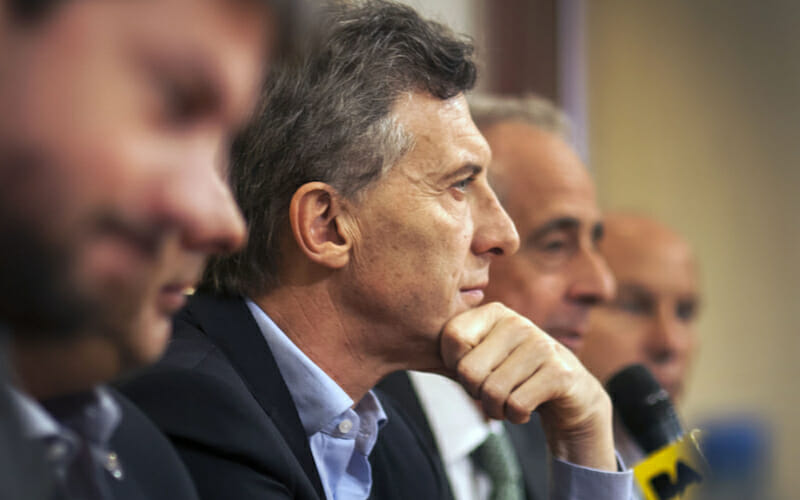
Argentina: The Big Failure
The economic history of Argentina can be considered to be one of the most depressing cases of economic progress. Up until the Great Depression, Argentina was one of the richest countries in the world. Its vast fertile land and the agricultural diversity of the region made Argentina one of the biggest economic actors in the Americas. Despite its impressive growth early in the century, since the 1950s, Argentina has been in a constant battle for growth, and it is difficult to explain in a few words what exactly went wrong. But there are historical reasons that caused this economic and political calamity in Argentina. First, military authoritarianism, secondly the failed policy of import substitutions and lastly, poorly managed public finances.
Since the 20th century, the Argentinian economy has been in a difficult position, but there is now a glimmer of hope. The election of Mauricio Macri in the last general election might finally bring about certain reforms to put the domestic economy back on a healthy track. Argentina needs to recover after the disastrous administration of the previous socialist-Perónist governments.
After the Great Depression, Argentina’s economy deteriorated notably. In 1930, after seven decades of civilian constitutional governments, a military junta took power. The history of Argentina develops pretty much in the same manner. Remarkably, Argentina has had six military coups during the 20th century: 1930, 1943, 1955, 1962, 1966 and 1976. Therefore, political instability has been a key determinant factor in the economic outcome of the country. Power was constantly interrupted by coups and the elected candidates were mostly radical populists.
One of the most influential presidents during the turmoil of the last century was Juan Domingo Perón, who was president three times: from 1946–1951, 1952–1955, and 1973–1974. Of his three terms, Perón’s first was the most relevant in terms of the fundamental changes to the Argentine economy and society.
Argentinian economist Eduardo Singerman explains Peron’s political views: “Perón viewed fascist corporatism as a useful method of social organization by which socially harmonious class participation would lead to a fair distribution of national output and elude in this way the class warfare predicted by Marxist socialism. In fact, Perón’s third position, which consisted of standing against international capitalism and international communism, was nothing less than fascist corporatism. This political-economic theory aims at organizing society into corporations or associations of persons with a common economic interest that are subordinated to the state. Under this philosophy, workers, employers, professionals, and other groups are organized into state-controlled unions and trade associations in each field of economic activity.”
Perón’s ideas of collectivism led Argentina towards a path of self-destruction. The hate for globalization and capitalism led Argentina to develop what we describe today as import substitution policy. Populism and state economic control have been a primordial cause of all the economic ills of Argentina.
Import Substitution and Protectionism
The Perón government supported trade protectionism from the beginning. Raúl Prebisch, an Argentinian economist for The Economic Commission for Latin America, developed his famous theory of dependence. Vincent Ferraro, explained Prebisch’s theory of dependence as: “Poor countries exported primary commodities to the rich countries, who then manufactured products out of those commodities and sold them back to the poorer countries. The ‘value added’ by manufacturing a usable product always cost more than the primary products used to create those products. Therefore, poorer countries would never be earning enough from their export earnings to pay for their imports.”
Perón implemented more strict controls on capital mobility, higher tariff barriers and therefore created difficulties for people to commercialize with the international competitors. This leftist view of the economy as a zero-sum game is what ultimately brought about Argentina’s calamity.
J.M Roberts argues that: “Import substitution countries came to rely even more heavily on imports, while the goods they produced were of inferior quality and not competitive in global export markets. And nowhere did this reality become more painfully obvious than in Argentina. In 1930, Argentina was one of the 10 wealthiest nations in the world. Today, according to the CIA, income per capita in Argentina ranks 87th, lower than in Russia or Kazakhstan. It is also lower than next-door Chile, a nation that turned away from Import Substitution in the 1970s and implemented market-based reforms.”
Argentina stills suffers from the consequences of political instability and the results of protectionism, but another important factor to understand the lack of growth in the economy is the lack of economic incentives. Argentina, in the Ease of Doing Business Index of 2015, an index by the World Bank (2015) which is meant to measure regulations directly affecting businesses such as procedures, time, cost and minimum capital to open a new business; the country ranked number 124 out of 190. Its neighbor Chile was ranked number 41. Therefore, opening up businesses in Argentina required a lot more time than in other countries in the region, which inevitably discourages investment and drives away capital that could be invested in the country.
On the other hand, Argentina puts a lot of fiscal pressure on its corporations by charging a top marginal tax rate of 35%, a rate well above the average in the developed and more advanced regional countries. This can be correlated with the difficulties Argentina has in attracting foreign capital. Today, big corporation prefer to invest their money in Chile or Peru, where corporate taxes are lower and there are less legal procedures in order to start operating. Also, the Argentinian peso is not helping the economy at all. The last decade in Argentina has been characterized by massive inflation. In order to stem this, the government has put a fixed exchange rate on the peso. Therefore, it is very difficult for average Argentinians to obtain foreign currency.
Despite all the current political and economic problems, Argentineans can still believe in a brighter future. President Mauricio Macri has ended the fixed exchange rate and has also initiated privatization in key sectors in order to create better incentives for the economy to work. I believe Argentina needs a series of reforms that would unfortunately harm the poorest classes in the short run, but certainly the previous model under protectionism and high government spending was not economically viable. I am optimistic about the future of Argentina. It is up to Macri now to change the mentality of the country and make reforms that would lead to a more liberal and prosperous nation.
